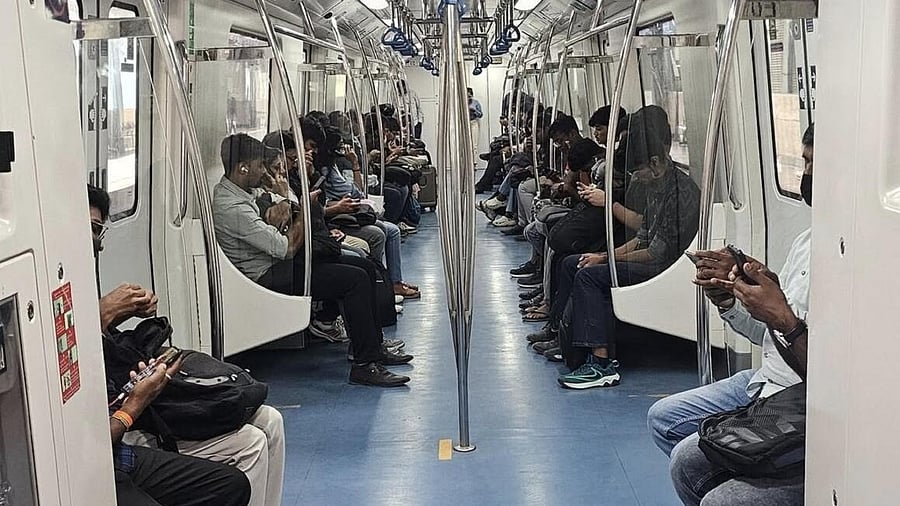
DH reported on March 5 that over 90,000 people had shifted from the metro to cheaper transport options.
Credit: DH File Photo
Bengaluru: Days after DH reported about the impact of the metro fare hike on air pollution, a Greenpeace survey of commuters found that 16% of respondents had shifted to cheaper modes of public transport, while 11% reported increased traffic congestion on the roads.
Greenpeace India surveyed 505 randomly selected respondents in marketplaces and high-footfall metro stations to assess commuting patterns following the fare hike on February 9.
According to the findings, 68% said their travel expenses had increased, 16% reported switching to a cheaper mode of public transport, 13% preferred walking, and 11% complained about spending less time with family due to worsening road congestion.
Alarmingly, 72.9% said they now spend more on commuting than on a one-time meal.
Women, who rely more on public transport than men, were particularly affected, with 38.2% stating they had reduced their ‘non-essential’ travel. Additionally, 5% of respondents planned to relocate closer to their workplace or college to mitigate rising transport costs.
Overall, more than 80% of respondents termed the fare hike 'unjust' and urged authorities to roll it back.
On a positive note, 86.7% said they would switch to public transport if it were more affordable and convenient.
Greenpeace India campaigner Aakiz Farooq emphasised the need for investment in affordable and efficient mass transit, given the severe environmental crises facing cities. "A dedicated public transport budget is essential, and both the state and central governments must step up to strengthen the mass transit system. The government should introduce ‘Climate Tickets’ to incentivise public transport for commuters,” he said.
Appeal to BMRCL
In a letter to the Bangalore Metro Rail Corporation Limited (BMRCL), the NGO urged authorities to hold a public consultation involving multiple stakeholders— such as civil society organisations, rights-based groups, and student organisations — before implementing any fare hike.
Notably, DH reported on March 5 that over 90,000 people had shifted from the metro to cheaper transport options, contributing to an increase in air pollution.